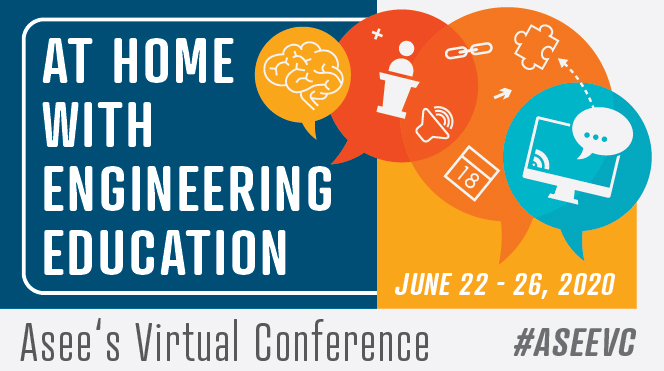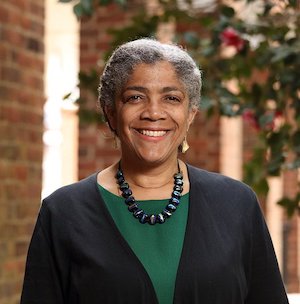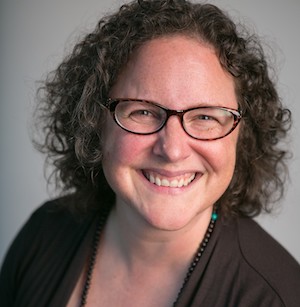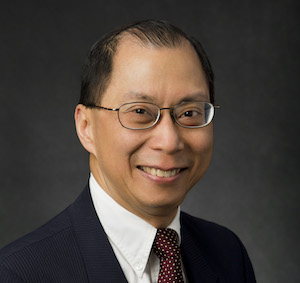
Expanding Resources that Connect Diversity, Equity, Access, & Inclusion with Ethics Education
2020 Annual Conference Virtual Workshop (Conference Registration Required)**
Friday, June 26, 2020
2:00 pm to 3:00 pm
Abstract
Connecting ethics to issues of diversity, equity, and inclusion is key for supporting how programs address the new ABET Outcomes, which include “create a collaborative and inclusive environment”. The NAE’s Online Ethics Center contains resources for ethics education, but lack issues of diversity. This session provides time to consider the intersection of diversity and ethics and a framework to develop materials that support teaching ethics from a diversity, equity, and inclusion perspective.
Learning Objectives
- Awareness of the importance of connecting issues of DEI to ethical training for engineers.
- Knowledge of and ability to access available tools and to create and submit materials to the Online Ethics Center (onlineethics.org).
- Connections to other participants invested in extending ethics education to include perspectives of diversity, equity, access, and inclusion, with the next steps for addressing the challenge.
Facilitators
 Rosalyn Berne, Ph.D.
Rosalyn Berne, Ph.D.
Director for the Center of Engineering Ethics and Society, National Academy of Engineering
Rosalyn W. Berne, PhD, serves as Director for the Center of Engineering Ethics and Society at the National Academy of Engineering. There she oversees the OEC website and is working on a number of project proposals, including ethics and plastics pollution, and humanoid robots. Berne holds an appointment as Associate Professor in the Department of Engineering and Society at the University of Virginia’s School of Engineering and Applied Sciences. As a scholar she has explored the intersecting realms of emerging technologies, science, fiction and myth, and the links between the human and non-human worlds. She has two academic books, numerous conference papers and journal articles, and a science fiction novel published under her name. She has also published two award-winning books in the body-mind-spirit genre.
 Rebecca Bates, Ph.D.
Rebecca Bates, Ph.D.
Professor & Chair, Minnesota State University, Mankato
Rebecca Bates is Professor and Chair in the Department of Integrated Engineering at Minnesota State University, Mankato where she directs three project-based learning engineering programs, Iron Range Engineering, Twin Cities Engineering and the new IRE Bell Program. These cutting edge programs articulate with community college programs and partner with regional industry to prepare students for all aspects of engineering careers. The department is committed to increasing access to engineering education. She has been a Program Officer at the National Science Foundation where she supported the Historically Black Colleges and Universities Undergraduate Program (HBCU-UP), the Tribal Colleges and Universities Program (TCUP) and the Alliances for Graduate Education & the Professoriate (AGEP) program. She has served in the leadership of ASEE’s Committee on Diversity, Equity & Inclusion and in the Engineering Ethics division. She is on the Editorial Board of the Online Ethics Center.

Michael Loui – professor, electrical and computer engineering
Michael Loui, Ph.D.
Professor Emeritus of Electrical and Computer Engineering, University of Illinois at Urbana-Champaign
Recently retired, Michael C. Loui was the Dale and Suzi Gallagher Professor of Engineering Education at Purdue University from 2014 to 2019. He was previously Professor of Electrical and Computer Engineering and University Distinguished Teacher-Scholar at the University of Illinois at Urbana-Champaign. He currently serves on the Advisory Group for the Online Ethics Center at the National Academy of Engineering. He is a Carnegie Scholar, an IEEE Fellow, and an ASEE Fellow. Professor Loui was the editor of the Journal of Engineering Education from 2012 to 2017. He was Associate Dean of the Graduate College at Illinois from 1996 to 2000. He directed the theory of computing program at the National Science Foundation from 1990 to 1991. He earned the Ph.D. at the Massachusetts Institute of Technology in 1980 and the B.S. at Yale University in 1975.
**This session is also offered complimentary as a part of our Summer Series.
We will link a recording of the virtual workshop after the live session.

